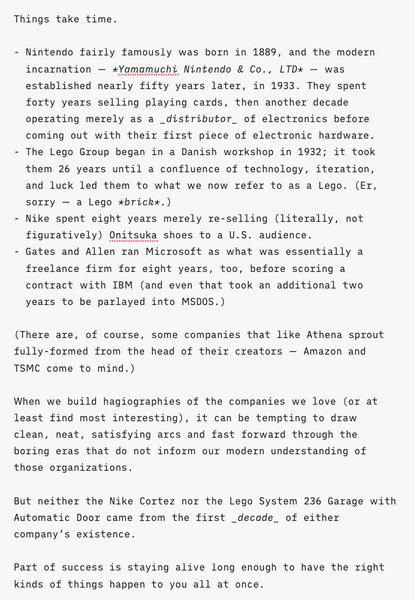✨ Where great ideas come from
Ideas in your zone of genius
Where will we see luxury software transform markets? Already, in the consumer productivity space, we’re starting to see “luxury” email clients, calendars, browsers, and search engines emerge. While all of these capabilities are freely accessible to consumers and rather commoditized, companies like Superhuman for email, Cron (now Notion) for... See more
Scott Belsky • Disruptive Interfaces & the Rise of Luxury Software
Luxury software. In the world of luxury software, designers will shift from being “interface builders” to “software artists.”
Great ideas come from stretching our imagination and focusing on the core need. How can we improve performance for people who spend the most time doing X or care about how they are perceived doing X?
Consume old stuff when you're young and new stuff when you're old. This is the opposite of what most people do
David Perell • Tweet
Algorithms have us addicted to distraction, and we need a "Slowness Revolution" to pull us out
Great ideas take time

Good things take time. Some of the best companies took many years before they found the right recipe
Abloh’s approach was often to make a small “3% “change to the original form. He wasn’t changing something by 3% just to change it by 3%, though. He was adding his personal 3% touch (in a world of generative AI, I really want to emphasize the personal touch aspecthere).
My favourite example of Abloh's approach was a collaboration with Nike on “The... See more
My favourite example of Abloh's approach was a collaboration with Nike on “The... See more
Trung Phan • 9 Creative Lessons From Virgil Abloh
What is a good way to riff on existing work? Small 3% changes.
A creativity that can only be unlocked when your back is against the wall.




